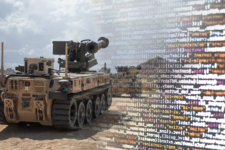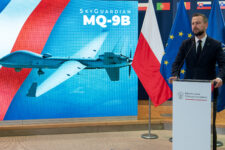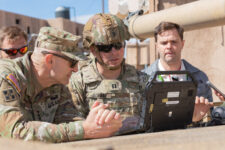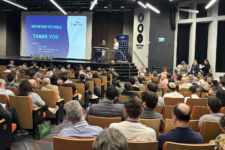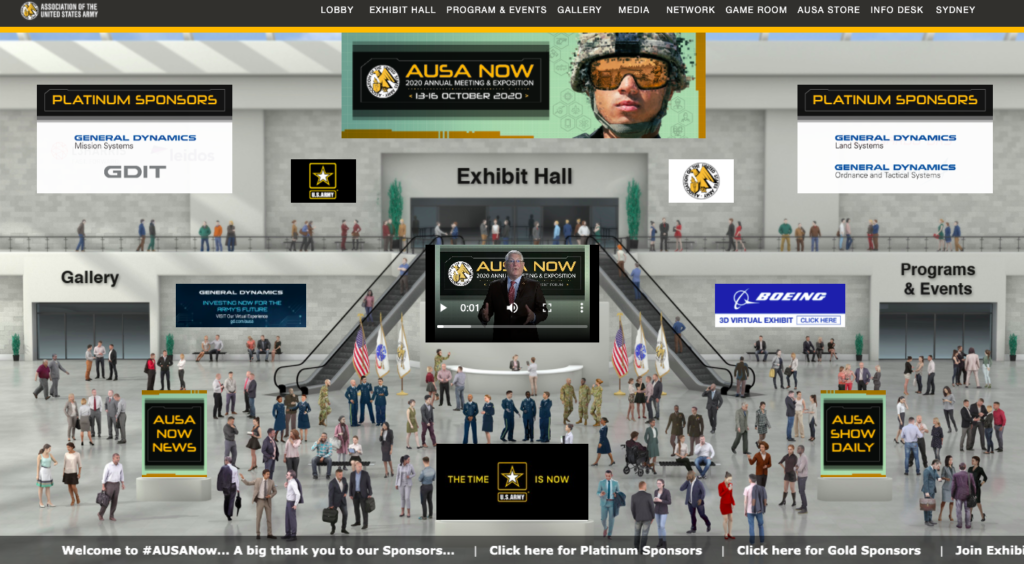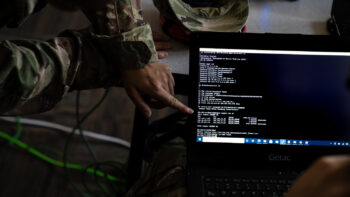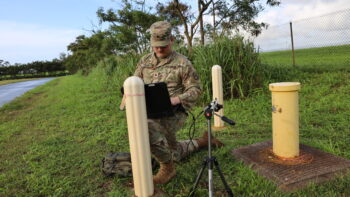WASHINGTON: “AUSA is extremely important,” the Army Chief of Staff, Gen. James McConville, told me. “This one’s going to be a little different because it’s going to be virtual, and so we’re going to find out, as we move in the information age, how that actually works. But it gives us an opportunity to talk about where we’re going, the things that we’re doing, how we’re transforming the Army, and why we need to transform the Army.”
[Click here to read more from our exclusive interview with Gen. McConville]
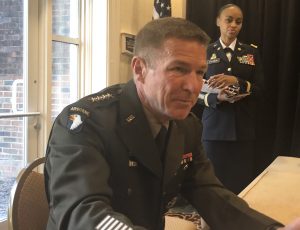
Gen. James McConville
This October, for the first time in decades, there’ll be no grand gathering of the Army’s disparate tribes in Washington, DC. There’ll be no tanks and drones on display in noisy halls, no old comrades calling out to each other in the crowd, no handshake agreements between contractors. But with the Association of the US Army’s Annual Meeting moved online, tens of thousands of soldiers, retirees, family members, contractors, foreign allies, media and more will still log in and hear the Army’s leaders speak.
“AUSA is extremely important because it’s really a gathering of many militaries, not just our military,” McConville said, pointing to the many international participants. “It’s a gathering of the Army family… all of our soldiers, our families, the Department of the Army civilians, our soldiers for life, our retirees. It’s the gathering of industry … and our partners, our allies.”
In fact, without all the face-to-face encounters with old friends or glitzy displays, the attendees might be actually more focused on the Army’s message.
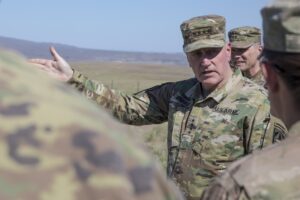
Gen. John “Mike” Murray
“This may be a better opportunity to get our message out than a normal AUSA conference, because you don’t have all the distractions,” said Gen. Mike Murray, who leads Army Futures Command. “I actually see this as an opportunity to not get lost in the shuffle of everything else that’s going on at the annual convention.”
[Click here to read more from our exclusive interview with Gen. Murray]
“I think we have a better opportunity to clearly communicate our message this time in a virtual forum, because people aren’t [rushing], trying to get to this forum or that forum and you’ve got to walk 10 minutes to get to it,” Murray told me. “I’m going to do it all right here from my computer, and industry is going to do it from their computer; congressional staffers are going to do it from their computer.”
“It’s not that the normal convention isn’t a tremendous opportunity,” he said, “but I think the focus this time on messages is going to be a lot cleaner.”
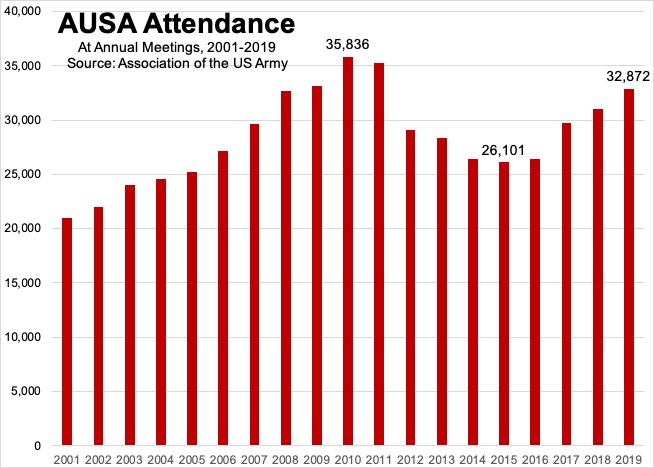
Breaking Defense graphic from AUSA data

